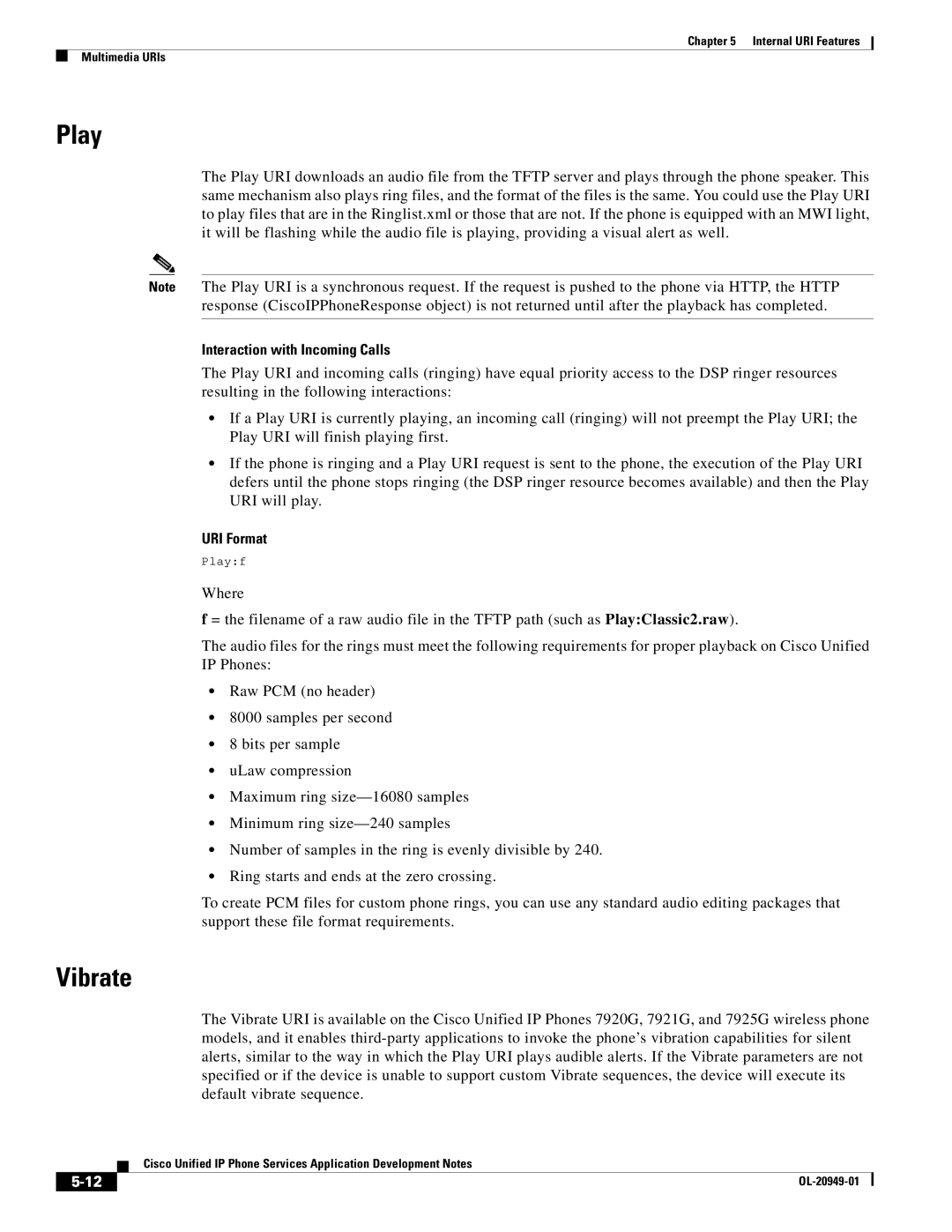
Chapter 5 Internal URI Features
Multimedia URIs
Play
The Play URI downloads an audio file from the TFTP server and plays through the phone speaker. This same mechanism also plays ring files, and the format of the files is the same. You could use the Play URI to play files that are in the Ringlist.xml or those that are not. If the phone is equipped with an MWI light, it will be flashing while the audio file is playing, providing a visual alert as well.
Note The Play URI is a synchronous request. If the request is pushed to the phone via HTTP, the HTTP response (CiscoIPPhoneResponse object) is not returned until after the playback has completed.
Interaction with Incoming Calls
The Play URI and incoming calls (ringing) have equal priority access to the DSP ringer resources resulting in the following interactions:
•If a Play URI is currently playing, an incoming call (ringing) will not preempt the Play URI; the Play URI will finish playing first.
•If the phone is ringing and a Play URI request is sent to the phone, the execution of the Play URI defers until the phone stops ringing (the DSP ringer resource becomes available) and then the Play URI will play.
URI Format
Play:f
Where
f = the filename of a raw audio file in the TFTP path (such as Play:Classic2.raw).
The audio files for the rings must meet the following requirements for proper playback on Cisco Unified IP Phones:
•Raw PCM (no header)
•8000 samples per second
•8 bits per sample
•uLaw compression
•Maximum ring
•Minimum ring
•Number of samples in the ring is evenly divisible by 240.
•Ring starts and ends at the zero crossing.
To create PCM files for custom phone rings, you can use any standard audio editing packages that support these file format requirements.
Vibrate
The Vibrate URI is available on the Cisco Unified IP Phones 7920G, 7921G, and 7925G wireless phone models, and it enables
| Cisco Unified IP Phone Services Application Development Notes |
